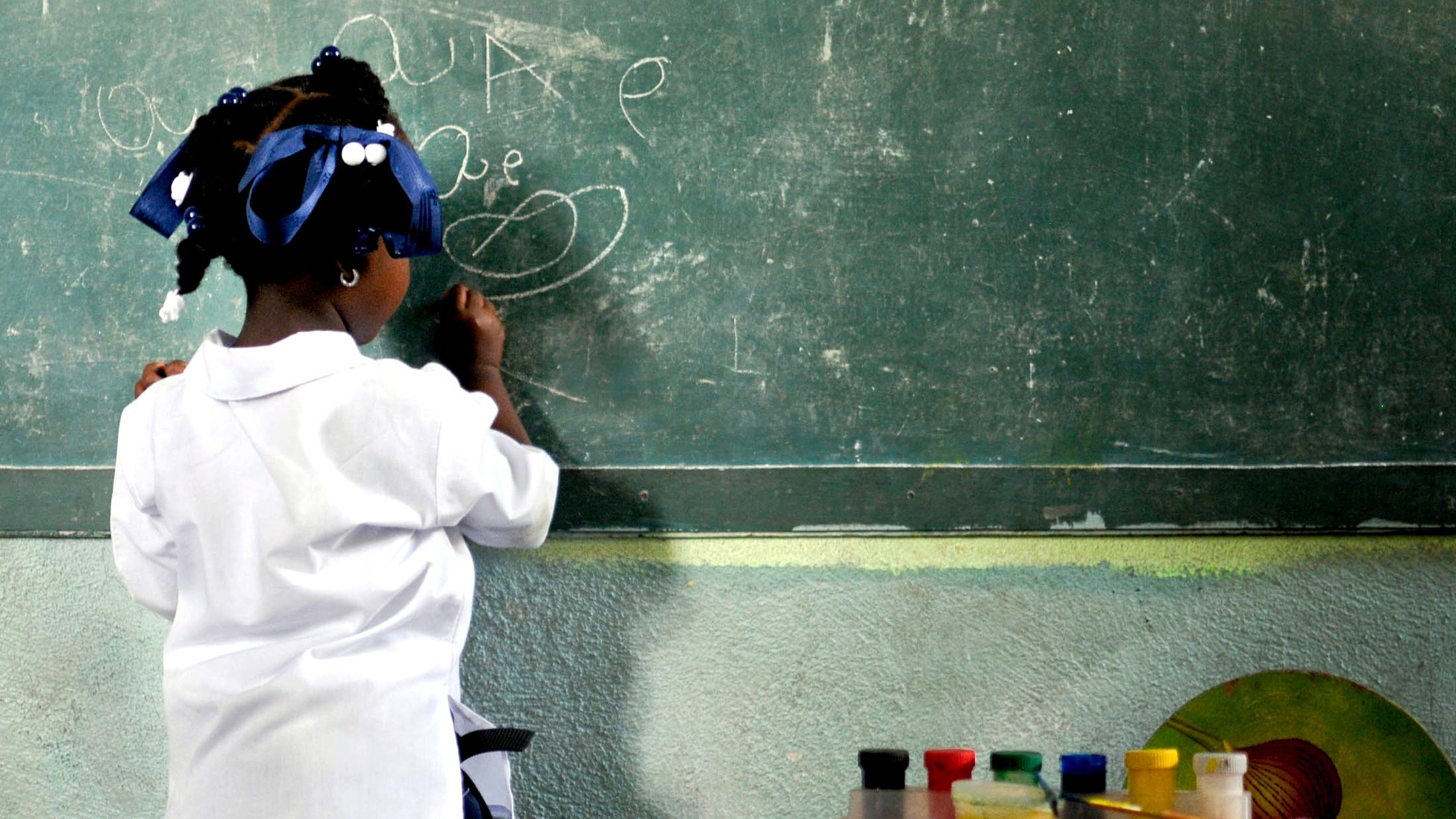The Negative Impact Of School Suspensions: Evidence And Alternatives

Table of Contents
H2: Academic Consequences of School Suspensions
School suspensions significantly impact a student's academic progress and future opportunities. The removal from the classroom creates a ripple effect with lasting consequences.
H3: Increased Absenteeism and Lower Grades
Suspensions directly lead to missed instruction, causing students to fall behind their peers. This lost learning time translates to lower grades, diminished academic performance, and a higher risk of grade repetition.
- Missed instruction: Days spent suspended represent crucial learning time lost.
- Falling behind peers: Students struggle to catch up on missed material, impacting their understanding and confidence.
- Negative impact on GPA: Lower grades directly affect a student’s GPA, potentially affecting college applications and future opportunities.
- Increased likelihood of dropping out: Repeated suspensions can lead to disengagement and ultimately dropping out of school.
Research consistently shows a strong correlation between suspension rates and decreased academic achievement (source: National Education Association, various reports). Students facing suspension are more likely to experience difficulties in subsequent years and struggle to meet academic benchmarks.
H3: Long-Term Educational Impacts
The negative effects of school suspensions extend far beyond immediate academic performance. They can severely impact a student's future educational opportunities and overall life trajectory.
- Reduced college enrollment: A lower GPA and disrupted academic record make college admission more challenging.
- Lower graduation rates: Students with multiple suspensions are at a significantly higher risk of not graduating high school.
- Decreased earning potential: Lack of a high school diploma or college education limits future job opportunities and earning potential.
Studies have shown a clear link between school suspensions and long-term educational outcomes, with suspended students exhibiting lower levels of educational attainment and subsequent economic success (source: National Bureau of Economic Research, various studies).
H2: Social and Emotional Consequences of School Suspensions
Beyond the academic realm, school suspensions inflict significant social and emotional harm, often exacerbating the very behaviors they aim to address.
H3: Increased Behavioral Problems
Instead of addressing the root causes of misbehavior, suspensions can create a cycle of alienation and resentment, potentially leading to more serious behavioral issues.
- Increased feelings of alienation: Suspension isolates students, making them feel disconnected from their school and peers.
- Resentment towards school authority: Suspensions can foster negative feelings towards teachers and administrators, further hindering positive school relationships.
- Potential for increased involvement in criminal activity: Students who are frequently suspended are at greater risk of engaging in delinquent behavior.
The punitive nature of suspensions often fails to teach positive behavioral skills, instead fueling a cycle of negative reinforcement.
H3: Mental Health Impacts
School suspensions have profound impacts on students' mental health, especially for those from already marginalized groups.
- Increased rates of depression, anxiety, and other mental health issues: The trauma and isolation associated with suspension significantly contribute to mental health challenges.
- Particularly affects marginalized students: Students from minority groups or with disabilities are disproportionately affected by the negative mental health effects of suspensions.
Studies demonstrate a clear correlation between school suspensions and increased rates of depression, anxiety, and other mental health problems (source: Journal of School Psychology, various articles).
H2: Disproportionate Impact of School Suspensions on Marginalized Students
School suspensions are not applied equally across all student populations. Significant disparities exist along racial, ethnic, and disability lines.
H3: Racial and Ethnic Disparities
Minority students, particularly African American and Latino students, are suspended at significantly higher rates than their white peers, even when controlling for other factors. This overrepresentation highlights systemic biases within school disciplinary practices.
- Implicit bias in disciplinary practices: Unconscious biases can influence how teachers and administrators perceive and respond to student behavior, leading to disproportionate discipline.
- Zero-tolerance policies: Strict zero-tolerance policies often exacerbate these disparities by automatically mandating suspensions for certain offenses, regardless of context.
Statistics consistently show the stark reality of racial and ethnic disparities in school suspensions (source: Office of Civil Rights, US Department of Education, various data).
H3: Students with Disabilities
Students with disabilities are also disproportionately suspended, reflecting a failure to provide adequate support and appropriate accommodations.
- Lack of appropriate support systems: Many students with disabilities require individualized support to manage behavioral challenges, and the lack of such support often results in suspensions.
- Need for alternative disciplinary measures: Students with disabilities may benefit from alternative disciplinary strategies that address the underlying causes of their behavior.
Providing appropriate accommodations and support can significantly reduce the need for suspensions for students with disabilities.
H2: Effective Alternatives to School Suspensions
Moving beyond punitive measures, schools can adopt effective alternatives that address student behavior in a more constructive and supportive manner.
H3: Restorative Justice Practices
Restorative justice focuses on repairing harm and promoting reconciliation, rather than simply punishing students.
- Mediation: Involving all parties affected by a conflict to facilitate dialogue and problem-solving.
- Conflict resolution: Teaching students skills to manage conflicts peacefully and respectfully.
- Community service: Providing opportunities for students to contribute to the school community and take responsibility for their actions.
Many schools have successfully implemented restorative justice, resulting in reduced suspension rates and improved school climate (source: International Institute for Restorative Practices).
H3: Positive Behavioral Interventions and Supports (PBIS)
PBIS is a proactive approach that focuses on preventing misbehavior through positive reinforcement and teaching social-emotional skills.
- Teaching social-emotional skills: Providing explicit instruction in skills like self-regulation, empathy, and conflict resolution.
- Creating positive school climates: Fostering a supportive and inclusive school environment where all students feel safe, respected, and valued.
Schools implementing PBIS have seen significant reductions in disciplinary incidents and improved student behavior (source: Office of Special Education Programs, US Department of Education).
H3: Trauma-Informed Approaches
Recognizing that many students have experienced trauma that impacts their behavior, a trauma-informed approach prioritizes creating a safe and supportive learning environment.
- Understanding the impact of trauma on student behavior: Recognizing that challenging behaviors may be a manifestation of past trauma.
- Trauma-sensitive disciplinary approaches: Using disciplinary strategies that are sensitive to the needs of students who have experienced trauma.
Implementing trauma-informed practices can create a more effective and compassionate approach to discipline (source: National Child Traumatic Stress Network).
3. Conclusion
The evidence overwhelmingly demonstrates that school suspensions have detrimental academic, social-emotional, and disproportionate impacts on marginalized students. Continued reliance on suspensions perpetuates a cycle of failure, impacting students’ educational trajectories and overall well-being. The urgency for change is undeniable. We must embrace effective alternatives like restorative justice, PBIS, and trauma-informed approaches. By understanding the detrimental impact of school suspensions and embracing effective alternatives, we can create safer, more equitable, and supportive learning environments for all students. Let’s work together to reduce school suspensions and build a better future for our children. Let's advocate for changes in school discipline policies, promoting positive behavioral interventions and restorative justice practices to create more inclusive and effective learning environments, reducing the reliance on school suspensions.

Featured Posts
-
 Nvidia Ceo Wants Trump To Alter Ai Chip Export Regulations
May 02, 2025
Nvidia Ceo Wants Trump To Alter Ai Chip Export Regulations
May 02, 2025 -
 Kogi Train Breakdown Leaves Passengers Stranded
May 02, 2025
Kogi Train Breakdown Leaves Passengers Stranded
May 02, 2025 -
 Fortnite Server Outage Chapter 6 Season 2 Lawless Update
May 02, 2025
Fortnite Server Outage Chapter 6 Season 2 Lawless Update
May 02, 2025 -
 The Future Of Valorant Mobile Insights From The Pubg Mobile Studio
May 02, 2025
The Future Of Valorant Mobile Insights From The Pubg Mobile Studio
May 02, 2025 -
 Leaked Messages Reveal Deep Divisions Within Reform Party Farage At The Center
May 02, 2025
Leaked Messages Reveal Deep Divisions Within Reform Party Farage At The Center
May 02, 2025
